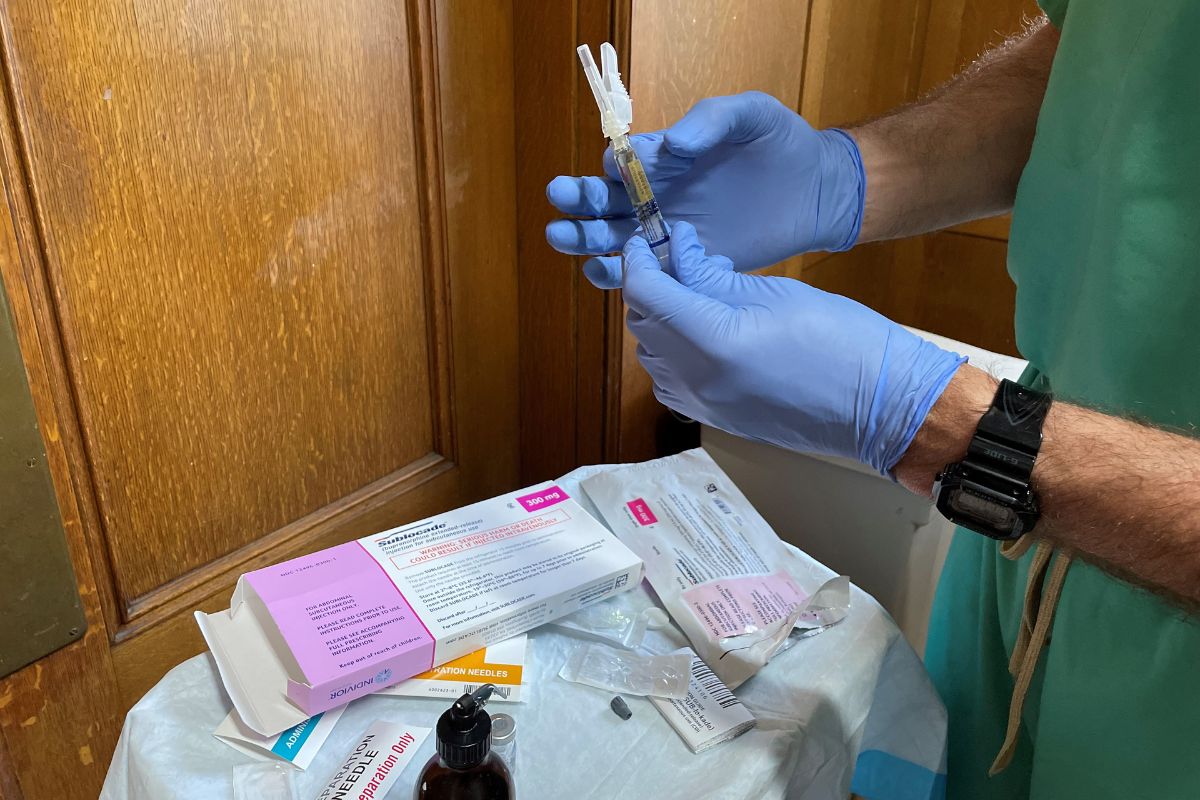California Hospitals and Advocates: In the realm of behavioral health, California hospitals and advocates are rallying for secure funding to maintain crucial behavioral health navigator positions.
As the demand for mental health services continues to surge, these navigators play a pivotal role in guiding individuals towards appropriate care and resources.
However, amidst this pressing need, concerns loom regarding the sustainability of funding essential for retaining these navigators.
Stay tuned to uncover the intricate web of challenges faced by California hospitals in ensuring the continuity of this vital support system.
Funding Concerns for CA Bridge’s Navigator Program
The sustainability of CA Bridge’s Navigator Program in California is jeopardized by the precarious reliance on one-time funding, leading to concerns among health providers and addiction experts about the program’s long-term effectiveness.
Launched in 2022, the initiative plays a crucial role in directing individuals with substance use disorder towards extended treatment post-emergency room discharge. However, the current funding structure presents challenges in maintaining essential staff, potentially hindering the program’s ability to deliver consistent and effective support to those in need.
Health providers and addiction specialists are alarmed by the instability caused by this funding model, as it threatens the continuity and quality of care provided by the behavioral health navigators. Without secure and ongoing financial support, the program risks losing skilled personnel and may struggle to fulfill its mandate of guiding patients towards sustained recovery.
Addressing these funding uncertainties is paramount to ensuring the program’s longevity and maximizing its positive impact on individuals grappling with substance abuse issues.

Opioid-Related Overdoses in California
Amidst the rising tide of opioid-related overdoses in California, the prevalence of synthetic opioid fentanyl in 88% of cases signals a pressing need for targeted interventions to combat this escalating crisis. In 2022, California experienced 7,385 opioid-related overdoses, with a significant majority involving the potent and dangerous drug, fentanyl. This alarming statistic underscores the severity of the drug crisis gripping the state. The presence of fentanyl, a synthetic opioid that is significantly more potent than other opioids, poses a grave threat to individuals struggling with substance use disorder.
The surge in opioid-related overdoses highlights the critical importance of initiatives like CA Bridge, which aims to provide timely intervention and support to those affected by the opioid epidemic. Addressing the root causes of opioid addiction, ensuring access to effective treatment, and enhancing community support systems are vital components of combating this public health emergency. As California grapples with the devastating impact of opioid overdoses, targeted efforts and resources must be allocated to prevent further loss of life and support those in need of assistance.
CA Bridge’s Multilayered Approach
In light of the escalating opioid crisis in California, the multilayered approach of CA Bridge stands out as a comprehensive initiative designed to combat substance use disorders effectively.
Established in 2018, CA Bridge implements a range of strategies within emergency rooms to address substance use disorders. Central to this approach is the behavioral health navigator program, which plays a crucial role in connecting individuals with long-term treatment options.
Furthermore, the initiative includes training for medical professionals to promote the appropriate use of prescription medications, underscoring a holistic approach to addiction care. By integrating these various components, CA Bridge aims to provide individuals struggling with substance use disorders the support and resources needed to navigate their recovery journey successfully.
This multifaceted strategy not only addresses immediate needs in emergency situations but also focuses on facilitating sustainable pathways to long-lasting recovery, making it a noteworthy model in the fight against substance abuse in California.
Challenges in Sustainable Funding and Workforce Retention
Facing ongoing challenges in sustainable funding and workforce retention, the Secure Funding for Behavioral Health Navigators in California initiative is crucial for ensuring the stability and longevity of the navigator program. Despite hospitals receiving up to $120,000 to contract with behavioral health workers, the program struggles with retaining staff due to funding uncertainties, leading to over a hundred navigators leaving their positions. The complexity of relying on one-time funding exacerbates the difficulty in sustaining the program. Moreover, the absence of ongoing state funding further compounds these challenges, making it essential to establish secure and continuous funding mechanisms to support the retention of skilled navigators and ensure the program’s effectiveness in addressing behavioral health needs in California.
Best For: Organizations seeking to enhance their behavioral health support services with skilled navigators while navigating funding uncertainties.
Pros:
- Access to up to $120,000 in funding to contract with behavioral health workers.
- Opportunity to improve behavioral health services and support for clients.
- Potential to address workforce retention challenges in the behavioral health field.
CA Bridge’s Impact and Future Goals
With nearly $100 million in federal and state funding, CA Bridge has demonstrated significant positive outcomes, serving 265 hospitals and providing buprenorphine to over 76,801 patients as of January 2023. The program’s impact on addressing opioid addiction and supporting individuals in need has been substantial.
However, concerns about sustainability loom large. Looking ahead, CA Bridge aims to expand its reach by leveraging resources such as Medi-Cal and seeking additional federal grants. These steps are crucial to ensure the continued success of the program in providing essential services to those grappling with substance use disorders.

Also Read: Dignity Health Dollar 270K Boost: Changing Lives in Local Communities!
News In Brief
California hospitals and advocates push for stable funding to retain vital behavioral health navigators amidst rising mental health needs. The CA Bridge’s Navigator Program, crucial for substance disorder treatment post-ER discharge, faces instability due to one-time funding reliance. With over 100 navigators leaving, concerns heighten over sustained care quality. The state witnessed 7,385 opioid overdoses in 2022, mostly involving fentanyl. CA Bridge, aiding 76,801 patients with buprenorphine, seeks to combat opioid crises but requires stable funding. Expansion plans include leveraging MediCal and federal grants to sustain support for substance disorder patients. Addressing funding uncertainties is critical for California’s behavioral health support system.

